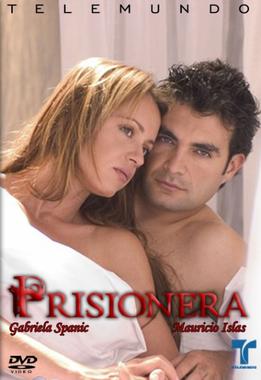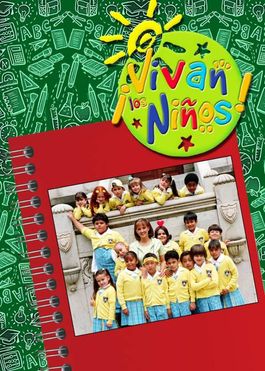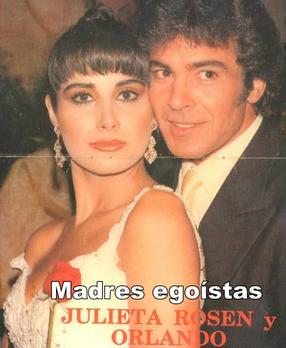Related Research Articles

Prisionera is a telenovela made by Telemundo and Caracol Televisión. This telenovela was aired in 16 countries around the world.

The LVI Legislature of the Congress of Mexico met from 1994 to 1997.

¡Vivan los niños! is a Mexican telenovela produced by Nicandro Díaz González for Televisa. It aired on Canal de las Estrellas from July 15, 2002, to March 17, 2003. It's an adaptation of the 1983 Argentinean telenovela Señorita maestra.
Camila is a Mexican telenovela produced by Angelli Nesma Medina for Televisa in 1998. The story is a remake of 1978 Mexican telenovela Viviana. It aired on Canal de Las Estrellas from September 14, 1998 to January 15, 1999.

Marisol is a Mexican telenovela produced by Juan Osorio for Televisa in 1996. Telenovela is a remake of the 1977 Mexican telenovela Marcha nupcial. Famous and beloved Enrique Álvarez Félix died after he finished his work in Marisol.

Cuando llega el amor is a Mexican telenovela produced by Carla Estrada for Televisa in 1989.
La Heredera is a Mexican telenovela produced by TV Azteca. It marked the third reunion for Silvia Navarro and Sergio Basañez as protagonists. The series was then developed into an American telenovela by the title of American Heiress.
Vidas Robadas is the title of a Spanish-language telenovela produced by the Mexican television network TV Azteca. It is internationally known as "Infamia". It stars Carla Hernandez, Andres Palacios, and marks the return of the grand actress, Cristian Bach to the television screen.
La antorcha encendida is a Mexican telenovela produced by Ernesto Alonso and Carlos Sotomayor for Televisa in 1996. It was the last historical telenovela produced by Televisa. The plot tells the Independence of Mexico, with an emphasis on historical accuracy. It was written by Fausto Zeron Medina in collaboration with Liliana Abud. It premiered on Canal de las Estrellas on May 6, 1996, and ended on November 15, 1996.

Tres mujeres is a Mexican telenovela produced by Roberto Hernández Vázquez for Televisa in 1999-2000. When it came out it was such a success that they added 3x the normal amount of chapters. There are 280 Chapters when there are normally about 100 chapters. The Telenovela ended in 2000, which made it the longest Telenovela produced by Televisa until Clase 406.
Siempre te amaré is a Mexican telenovela produced by Juan Osorio for Televisa that premiered on Canal de Las Estrellas on January 24, 2000 and ended on July 28, 2000. It was adapted from the 1975 telenovela Lo imperdonable by Consuelo Garrido and Georgina Tinoco.

Madres egoístas is an Argentine-Mexican telenovela, produced by Juan Osorio for Telefe and Televisa in 1991.
Al filo de la muerte is a Mexican telenovela produced by Emilio Larrosa for Televisa in 1991.

Viviana is a Mexican telenovela produced by Valentín Pimstein for Canal de las Estrellas in 1978.

Soledad is a Mexican telenovela produced by Valentín Pimstein for Televisa in 1980.
Lo blanco y lo negro is a Mexican telenovela produced by Ernesto Alonso for Televisa in 1989.

Victoria is a Mexican telenovela produced by Ernesto Alonso for Televisa in 1987. Its original story of Luis Reyes de la Maza, was adapted by Tere Medina and directed by Alfredo Gurrola.
Mágica juventud is a Mexican telenovela produced by Emilio Larrosa for Televisa in 1992.

Bajo un mismo rostro is a Mexican telenovela produced by Christian Bach and Humberto Zurita for Televisa in 1995.
References
- ↑ "Atrapada" (in Spanish). alma-altina.net. Archived from the original on September 20, 2011. Retrieved February 21, 2016.